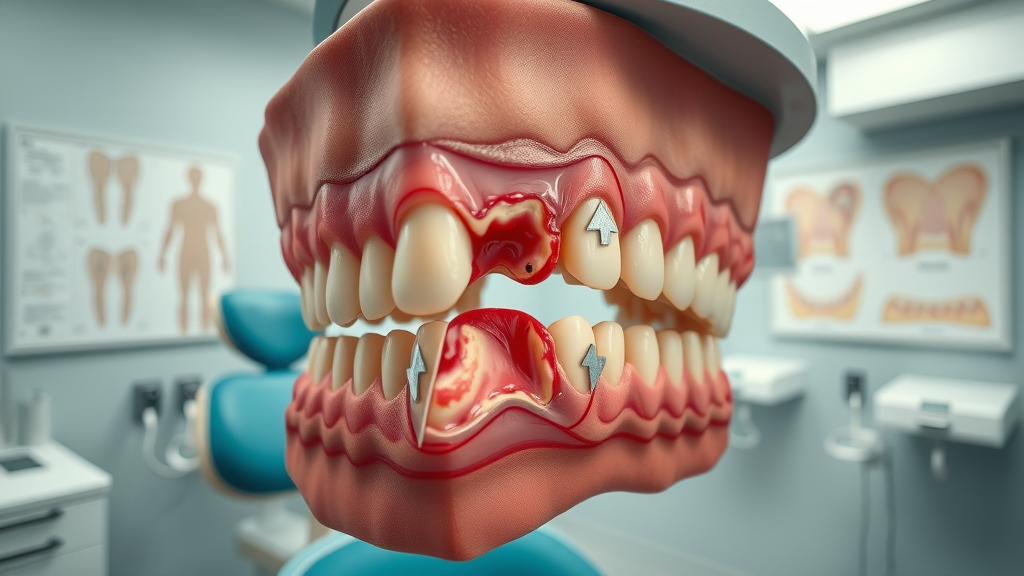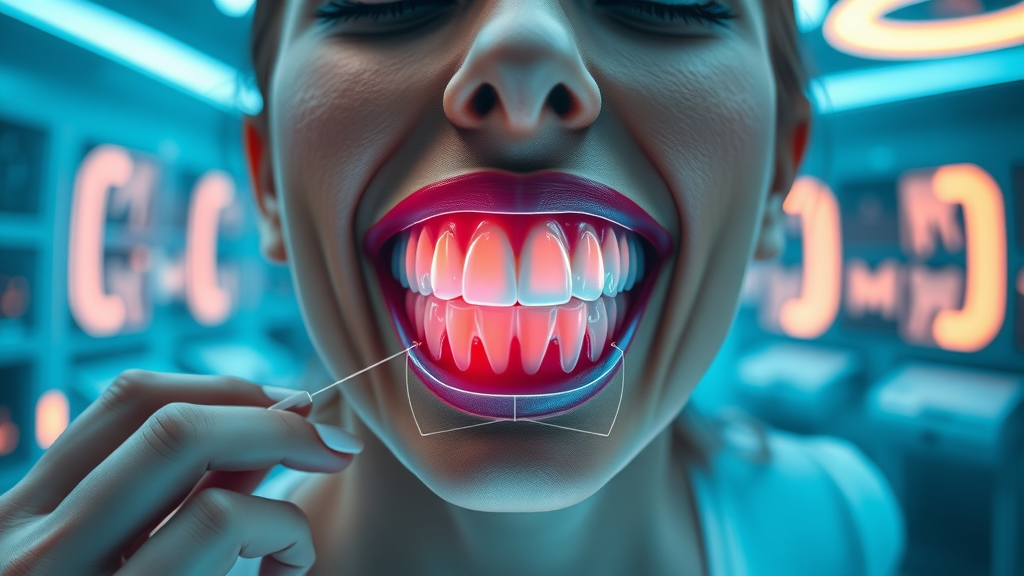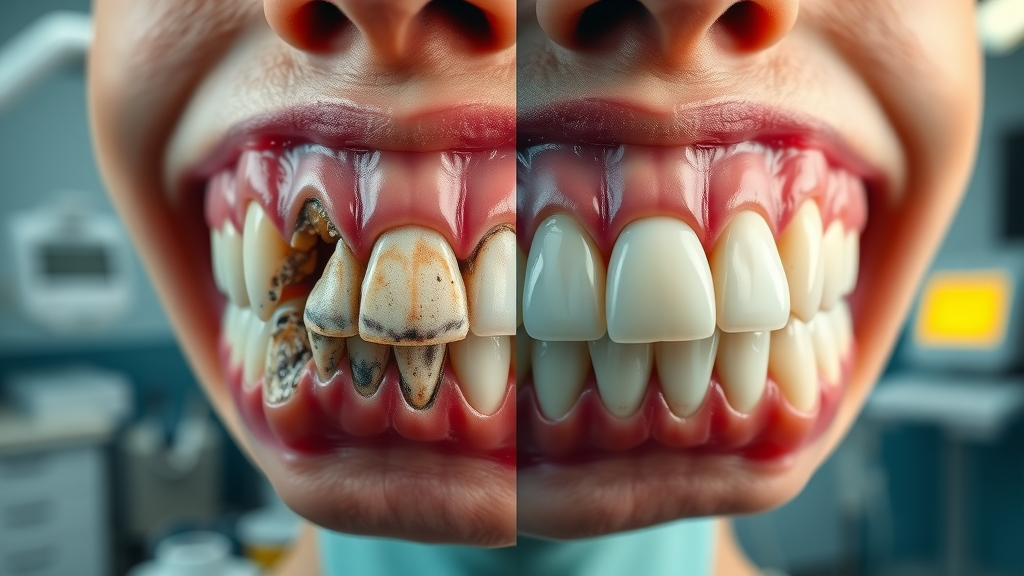Have you noticed your gums are more sensitive and bleeding more often now that you’re pregnant? You’re not alone. Pregnancy brings surprising changes to your dental health—here’s why it matters.

Understanding Why Gums Become Sensitive and Bleed During Pregnancy
The question “Now that I’m pregnant, my gums are more sensitive and bleed more easily. Why?” is incredibly common. As soon as pregnancy begins, the body undergoes dramatic hormonal and immune shifts. One often-overlooked effect is on your oral health: more than half of pregnant women report increased gum sensitivity and even bleeding gums during pregnancy. This isn’t just an annoying side effect—it’s an important signal from your body. Left unchecked, pregnancy-related swollen gums and bleeding can lead to pregnancy gingivitis and even heighten the risk of other pregnancy complications. That’s why paying attention to changes in your teeth and gum health now is more important than ever.
Early recognition and intervention with good oral hygiene can prevent problems before they develop. Maintaining optimal dental care protects both your comfort and your baby’s health. This article will explain the reasons for your symptoms, what risks come with ignoring them, and most importantly, give you proven steps to strengthen and protect your teeth and gums throughout your pregnancy. Let’s explore why these changes happen—and how you can stay ahead of them.
What You'll Learn: Pregnancy and Dental Health Challenges
- Why hormonal changes affect teeth and gums
- How to manage bleeding gums during pregnancy
- Risks of ignoring gum sensitivity
- Tips for maintaining good oral hygiene and dental care
- When to seek help for pregnancy gingivitis
The Link Between Pregnancy and Sensitive, Bleeding Gums
Why do gums bleed more when pregnant?
During pregnancy, your body increases blood flow not just to nourish your baby, but to every tissue in your body—including your gums. This boost in circulation can cause swollen gums and make them more prone to bleeding, especially during teeth cleaning or flossing. The changes in hormone levels, particularly estrogen and progesterone, make your gums more reactive to bacteria and plaque. That’s why bleeding gums during pregnancy are so common, and why you may notice more redness, puffiness, and tenderness than before.
The good news is that this isn’t unusual. Both the American College of Obstetricians and Gynecologists and the American Dental Association highlight that gums during pregnancy often show these symptoms even if you practice regular good oral hygiene. Nevertheless, it’s a critical moment to be meticulous about your dental routine, because untreated pregnancy gingivitis can evolve into more severe conditions like periodontal disease or even impact pregnancy outcomes. Understanding the mechanisms now can help you stay in control.

Impact of Hormones on Teeth and Gums
The link between pregnant women and dental problems isn’t just a coincidence—it’s primarily driven by hormonal changes. Estrogen and progesterone, which spike during pregnancy, make your gums extra sensitive to plaque toxins and increase inflammatory responses. This hormonal milieu can weaken gum tissue and amplify symptoms of pregnancy gingivitis, resulting in softer, swollen gums that bleed more easily.
It’s essential for expecting mothers to understand that this is a perfectly natural biological reaction. The increased risk doesn’t mean you’re neglecting dental hygiene; rather, your body needs extra care now. Along with hormonal changes, the immune system slightly dampens to prevent rejection of the baby, further raising susceptibility to gum disease and tooth decay. Staying consistent with good oral practices is your best defense.
While understanding these hormonal and immune changes is crucial, it’s equally important to maintain a proactive approach to your dental care. Scheduling regular dental checkups during pregnancy can help catch issues early and keep your gums healthy—discover more about the importance of routine dental visits and how often you should go to ensure optimal oral health throughout this special time.
Key Facts: Bleeding Gums During Pregnancy
| Gum Health Indicator | Before Pregnancy | During Pregnancy |
|---|---|---|
| Sensitivity | Low | High |
| Bleeding Frequency | Rare | Common |
| Swelling | Minimal | Noticeable |
| Risk of Pregnancy Gingivitis | Low | Increased |
What Causes Sensitive and Bleeding Gums During Pregnancy?
Common Causes of Bleeding Gums in Pregnant Women
- Hormonal fluctuations
- Increased blood flow to gum tissue
- Changes in immune function affecting teeth and gums
- Neglected oral hygiene
Let’s break down these root causes. First, hormonal fluctuations intensify gum sensitivity and can trigger swollen gums. Second, the surge in blood flow means any irritation (even routine brushing) may easily cause bleeding gums. Third, pregnancy slightly suppresses immune response, which can allow the bacteria responsible for gum disease to flourish. Last, as your focus shifts to the baby and new routines, some women unintentionally relax on teeth cleaning and other self-care habits.
If left unchecked, these factors can combine to increase your risk of developing severe gum problems or more advanced conditions like periodontal disease. Consistently practicing good oral hygiene, such as regular brushing and flossing, dramatically reduces the risk of oral complications for pregnant women.
Why are my gums more sensitive when pregnant?
"During pregnancy, the body undergoes significant changes. Oral health shouldn’t be overlooked—it’s closely linked to your wellbeing and the baby’s." – Dr. Carter, Dental Health Specialist
The heightened sensitivity of your gums is your body’s natural response to protect both you and your growing baby. Increased hormone levels—especially progesterone—can make your gums more likely to react to plaque buildup. This stronger reaction means even small amounts of plaque can cause inflammation, tenderness, and bleeding gums during pregnancy. In essence, your gums become hyper-aware of any bacteria or irritants, and the easiest way your body signals this stress is by increased sensitivity and bleeding.
Many women are surprised to learn that something as simple as morning sickness (and the vomiting that sometimes comes with it) can also aggravate gum inflammation due to greater exposure to stomach acids. Therefore, it’s crucial to maintain gentle but thorough teeth cleaning routines, using a soft-bristled brush and pregnancy-safe mouth rinses to keep discomfort in check.
Recognizing Pregnancy Gingivitis and Other Dental Health Issues
What week does pregnancy gingivitis start?
Pregnancy gingivitis can develop as early as the first trimester, often becoming more pronounced by the second trimester as hormone levels continue to rise. For many, symptoms such as swollen gums, redness, and bleeding gums may start to show within weeks 8–12 of pregnancy. The risk of gum disease remains elevated throughout pregnancy, making early intervention essential.
Even if you’ve always had teeth and gums in good shape before, the shifts in your body can spark new sensitivity or inflammation. Regular dental checkups during pregnancy can help identify and reverse pregnancy gingivitis before it develops into more serious periodontal disease or affects your overall dental health.

How gum disease affects pregnant women and risks like preterm birth
Untreated gum disease, including pregnancy gingivitis, is not just a localized issue. The body’s inflammatory response triggered by severe gum disease has been linked to pregnancy complications like preterm birth and low birth weight. Studies by the American College of Obstetricians and Gynecologists highlight that oral bacteria can enter the bloodstream, potentially influencing the placenta and fetal development.
For pregnant women, maintaining good oral hygiene is a vital form of prenatal care. Not only does this practice prevent tooth decay and periodontal disease, it actively supports a healthier pregnancy outcome, reducing risks tied to preterm birth and birth weight.
How to Care for Your Gums During Pregnancy: Expert-Backed Dental Care
Best Practices for Oral Hygiene and Preventing Tooth Decay
- Brush teeth and gums twice daily with a soft-bristled brush
- Floss gently to remove plaque
- Use pregnancy-safe mouth rinses
Effective oral hygiene habits are your first line of defense against bleeding gums during pregnancy and related dental issues. Choose a soft-bristled toothbrush and brush twice a day, making sure to spend time on the gum line where bacteria often settle. Flossing daily helps remove plaque in places where your brush can’t reach—this is crucial because pregnancy hormones increase your gums’ reactivity to even small traces of plaque.
Consider using an alcohol-free, antimicrobial mouthwash specifically labeled as safe for pregnant women, which can further reduce bacteria while soothing sensitive gums. Pay extra attention if you’re dealing with morning sickness—wait at least 30 minutes after vomiting before brushing to prevent further enamel erosion, and rinse your mouth with water in the meantime.
When to Schedule a Dental Checkup During Pregnancy
Schedule a dental checkup as soon as you find out you’re pregnant—or if you’re planning your pregnancy soon. Regular appointments are completely safe during pregnancy, and your dentist can provide personalized guidance for your unique needs. The ideal time for non-urgent dental treatments is during the second trimester, but cleanings and exams are recommended at any stage to prevent pregnancy gingivitis and other conditions.
Notify your dentist about your pregnancy so they can tailor your care. Don’t wait if you notice persistent swollen gums, excessive bleeding, or signs of gum disease; prompt care can mean the difference between mild discomfort and more serious dental problems.
Expert Insights on Bleeding Gums and Teeth and Gums Care
"Maintaining good oral hygiene during pregnancy protects both you and your baby. Don’t ignore bleeding or swelling—consult your dentist promptly." – Dr. Carter
Dental professionals stress the importance of not normalizing bleeding or tender gums. While it’s common for pregnant women to experience these changes, they’re not inevitable or untreatable. Intentional dental care—from brushing and flossing to professional cleanings—makes a profound impact on your oral health throughout pregnancy and beyond.
Good oral hygiene also reduces the risk of developing pregnancy tumors (noncancerous growths on gums), which, though rare, can exacerbate discomfort and bleeding. Consistent teeth cleaning and early dentist visits can keep your smile—and your baby—healthier.
The Relationship Between Dental Health and Pregnancy Outcomes
Can gum problems cause complications during pregnancy?
Scientific research confirms a link between poor dental health and serious pregnancy outcomes, including preterm birth and low birth weight. Infections like periodontal disease can worsen inflammation throughout the body, sending stress signals that may trigger early labor. For these reasons, good oral practices must be a vital part of every prenatal wellness plan.
Not only do gum disease and tooth decay pose risks during pregnancy, they may accelerate if left untreated, complicating recovery after delivery and raising the risk for chronic dental problems.
| Risk | Description |
|---|---|
| Preterm Birth | Early delivery linked to gum disease |
| Low Birth Weight | Possible in cases of untreated infection |
| Increased Tooth Decay | Neglected care can worsen decay |
| Advanced Gum Disease | Untreated gingivitis progresses |
Proven Tips for Good Oral Hygiene During Pregnancy
- Choose a toothpaste with fluoride
- Avoid sugary snacks
- Drink plenty of water
- Seek prompt care for persistent bleeding gums
Making small adjustments to your daily habits pays huge dividends in both your comfort and the health of your developing baby. Select a fluoride toothpaste to strengthen enamel and protect against tooth decay. Limit consumption of sugary snacks and drinks, as they encourage the growth of harmful bacteria. Stay hydrated to support your body as it adjusts and to help flush out debris and bacteria from your mouth.
If your bleeding gums don’t improve with these strategies, don’t hesitate to reach out to a dental professional. Dental care is an important part of prenatal health, and your dentist can provide targeted solutions for your specific symptoms.

Addressing Common Concerns: People Also Ask
Do gums bleed more when pregnant?

Yes, bleeding gums during pregnancy are common due to a combination of hormone-driven increased blood flow and immune response changes. This makes gums more prone to irritation and triggers bleeding even during gentle brushing or flossing.
Why are my gums more sensitive when pregnant?
Your gums become more sensitive while pregnant because hormonal shifts make gum tissue more responsive to plaque and bacteria. Additional blood flow to oral tissues also raises sensitivity.
What week does pregnancy gingivitis start?
Pregnancy gingivitis can begin as early as the first trimester, becoming noticeable between weeks 8 and 12, and often intensifies into the second trimester. Early symptoms include swollen, tender, or bleeding gums.
Why are my gums so sensitive and bleed easily?
Pregnancy increases your susceptibility to gum inflammation, swelling, and bleeding due to a combination of hormonal fluctuations, increased blood flow, and changes in immune response. Thorough oral hygiene and regular checkups are crucial to manage these symptoms.
Frequently Asked Questions about Gum Health and Pregnancy
-
Is it safe to visit the dentist during pregnancy?
Yes, routine dental care and many procedures are safe during pregnancy. Notify your dentist so they can take necessary precautions. -
How can I reduce gum bleeding at home?
Practice good oral hygiene, use a soft-bristled brush, rinse with salt water, and avoid irritants like very hot or cold foods. -
Can pregnancy gingivitis go away after delivery?
In most cases, symptoms resolve with good dental care postpartum, but it’s important to continue oral hygiene practices.
Key Takeaways: Protecting Your Dental Health During Pregnancy
- Bleeding gums are a common side effect of pregnancy
- Good oral hygiene can prevent most gum issues
- Regular dental care is vital for both mom and baby

Conclusion: Prioritize Your Gums and Dental Health Now That You’re Pregnant
Now is the perfect time to invest in your dental health. With the right steps, you can prevent gum problems and ensure a healthy pregnancy for you and your baby.
As you continue your journey toward a healthy pregnancy, remember that your oral health is a vital part of your overall wellness plan. If you’re interested in a deeper understanding of our approach to patient care and how we support families at every stage, explore our philosophy of expert dentistry. You’ll discover how a commitment to preventive care and patient education can make a lasting difference for you and your growing family. Take the next step in safeguarding your smile and your baby’s future by learning more about our values and comprehensive dental services.
Take Charge of Your Oral Health: Contact Johnstown Dental Care Today!
Johnstown Dental Care
370 West Coshocton St.
Johnstown, OH 43031
Phone: (470) 967-6046
Website: www.johnstowndentalcare.com
Proudly Serving: Johnstown, New Albany, Granville, Alexandria, Pataskala, and surrounding areas in Licking County, Franklin County, and Delaware County.
Experiencing sensitive and bleeding gums during pregnancy is a common concern due to hormonal changes that increase gum sensitivity and susceptibility to plaque buildup. To better understand and manage this condition, consider exploring the following resources:
-
The article “Bleeding gums in pregnancy” from the NHS provides insights into the causes of gum sensitivity during pregnancy and offers practical advice on maintaining oral hygiene to prevent complications.
-
The Cleveland Clinic’s resource “Pregnancy Gingivitis: Causes, Treatment & Prevention” delves into the symptoms and causes of pregnancy gingivitis, emphasizing the importance of dental care during pregnancy and offering strategies for treatment and prevention.
By consulting these resources, you can gain a comprehensive understanding of pregnancy-related gum sensitivity and bleeding, along with effective methods to maintain optimal oral health during this crucial time.
 Add Row
Add Row  Add
Add 




Write A Comment